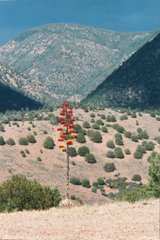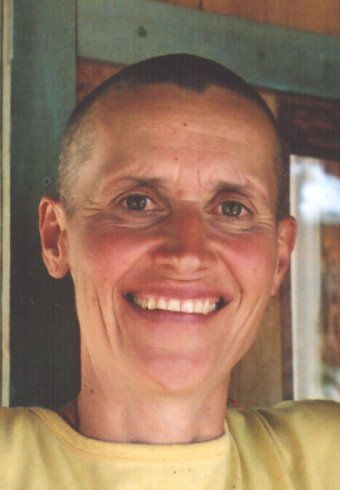I am not very good at history, at least remembering the details. It was always a favourite subject at school; the sense of exploring the past, uncovering what had been, how people thought, what they wore and ate. Like probably many other children, I dreamed of time machines (I don't know if the Tardus means much to anyone who grew up in the US: did Dr Who make it here?).
So I am ignorant of much of Australia's history, with any detailed accuracy. Yet some years ago I took a journey into a corner of my own family's past, a journey of remembering lives that lead to mine, and a journey of reconciliation.
Like the USA, Australia, as a white person's land, is relatively new, although it had been inhabited for thousands of years by its indigenous people. Members of my family were early explorers and settlers, some of whom had direct first contact with Aboriginal people. I read stories, journals of my not-so-distant forbears, including passages written by my mother's mother, herself a writer. My grandmother, who had held my hand as we walked in the park, collecting pine cones in the wintery morning of our nation's capital city. And my grandfather, who had delighted me by wiggling his ears, and whose coat always seemed to fit us both in.
It was a complex form of time travel, remembering things that somehow seemed so intimate, as these people and I are connected so closely and directly. How do i draw the line between them and me, when i can name them each and every one, and their relationship with me?
I uncovered stories both good and horrific; of an abandoned baby raised by my family, who grew up i am sure within a confusion of culture. Of ideas which to me seem so horrendously prejudiced, and yet which reflect the social milieu of the time. Of Aboriginal people shot and killed through fear. Of words which somehow describe the Aboriginal people as less than human. A coming together of worlds so different that it is in a way not suprising that so much suffering ensued. On every side.
This journey took me inside the mirror, not only of my family, but of my society, my country. It was a peeling back of the skin to try and understand and embrace the place in which I grew up. For many people in Australia, the recent decades have been a journey of reconciliation, for our history, although so short, is littered with bodies and cruelty and children torn from their families, even during my lifetime. Perhaps, sometimes, the motivation was to be of benefit, yet it caused so much pain and hardship and suffering for a whole country of people, invaded.
My salve was writing, exposing this journey on paper, in much the same way as I discovered it. Trying to make sense of the senseless; to reconcile the deep love I felt for my grandparents with the way they had viewed the world. To open my heart and try not to judge. To weep for the dead, and those that had killed them. To not perpetuate the divide, as best as I can, by again sowing the seeds of hatred and blame. To find forgiveness for that which seems unforgiveable.
And to discover the compassion in my own heart. For it must be there, of that I am sure.
Although I did not know it as a researched, read and wrote, those pages paved the beginning of my connection to this Path. As i struggled to come to terms with the enormity and intimacy of my family's and my country's actions, i was beginning to truly learn to be with kindness. To shift my angle of view, to try and let judgement fall, to know that they acted, as I do, from bewildering ignorance of the effects of our choices and actions. That this past is my own, and I cannot deny it, but i have the potential to create a new future.
During the process of writing, I took refuge with my teacher and began Ngondro, a foundational practice. I then won a fellowship to work on the book, and the writing and my path wove together, like my heartbeat and breath. Each day for three weeks i did practice and wrote. And contemplated. It was a watershed juncture in my life, which step after step has lead me to here, although of course at that time such a journey was beyond my thoughts.
I was reminded of this when I received an email from Australia about an event, not from our distant past, but from now. An Aboriginal man, Mulrunji, was in 2004 beaten so severely while in police custody that, according to the coroner, his liver was cleaved. He died on the floor of his cell. An independent enquiry has found enough evidence to charge Senior Sgt Hurley with manslaughter, but there is opposition from the police force to taking such action.
Aboriginal deaths in custody have been so common in Australia that a federal enquiry was instigated from 1987-1990, to investigate the situation. It found "There are few people in the Aboriginal community who have not been touched by a death in custody". It also uncovered the complexity and suffering of a people invaded, taken prisoner, humiliated, made subject to government ruling, and so on. A people who lived from and within a country, with intricate laws and beliefs that we did not, do not, understand, and because they seemed so foreign, alien, we did not know to respect and honour them. And so in a very short a space of time a tragedy unfolded. And continues today.
Australia is not unique, the world is checkered with history such as this. We are human, fallible and caught in a web of confusion, of them and us. It played out then, and sadly still does; our planet totters from one inhumanity to another, each and every day.
The wounds we inflict are our own, for we cannot unravel the threads that link our actions to their results, or others from us. There is no them and us, not really. I found this as i journeyed through my family's history, trying to find a place of respite, of reconciliation. There is only one such place: within my heart, or yours. That is where we can meet the perceived enemies and know their hearts beat in rhythm with ours, that their exhalation becomes our next breath. 'They' are not different from us in their essence, we only see it that way. Family, country, world. Me. You. It's all we have, it's what we share. May we all reach the common ground of open-minded kindness and equality that is the foundation of change.
Subscribe to:
Post Comments (Atom)


1 comment:
I wanted to say thank you for the comment and link you left on my blog. It was exactly what I needed to hear and be reminded of, again.
I will look forward to reading more of your entries very soon.
in gratitude,
Tia
Post a Comment